Editorials
– Most editorials criticized the level of sports in Iran with the approach of the Soccer game between Iran and Qatar.
– The differences between Tehran and Karakas during the reigns of Ahmadinejad and Chavez, and Hassan Rouhani and Nikolas Madoro.
Break News
– Break up two terrorist cells in Sistan and Baluchistan
– Altercation between the President and a member of the Higher Council of Virtual Space
Economic
– India pays back its oil debts to Iran
– Banking agreements with China
![]()
Sharq newspaper
“We are good, and Qataris are bad”
An editorial in today’s Sharq newspaper analyzed the level of football in Iran against the backdrop of the recent opening of the Qatar Football Academy in the Middle East.
Iranian media mobilized Iranian citizens to attend tomorrow’s game between Iran and Qatar to – they claim – show national accord and reconciliation within the Iranian society.
The editorial raises questions about the Qatari team, asking, does the recent establishment of the football academy, which they point out is achieved thanks to oil and gas money, mean that they’ve done a good or a bad thing, and should Iranians praise or criticize this achievement?
Responding to criticism in the Iranian media on the Qatari team benefiting from oil and gas money, the editorial enquires whether the Iranian team doesn’t also benefit from oil and gas money, further questioning whether Iran spends too little on its national team, and asks why Iran hasn’t opened a football academy of its own with even five percent of the value of the Qatar ‘Aspire’ academy.
Qatar’s decision to invest in high-value players and coaches and to consider developing the infrastructure of their football should be a lesson to Iran, the editorial states.
It adds that Iranians should study and adopt the Qatari administration’s model rather than criticizing it. It points out that Iran has paid similar amounts to that paid by the Qataris to create the ‘Aspire’ academy to its own football clubs, but lacks a similar football academy and should have one, adding that this long-term thinking enabled Qataris to win the Asian youth team championships.
The editorial added, while there will be criticism tomorrow of the Qatari team due to its multinational composition and the fact that some of the players are not of Qatari origin, this should be rebutted since the international football federation FIFA’s rules on this subject are extremely strict and don’t allow naturalized players in any country to play at national level for a number of years until they’ve attained full citizenship and are wholly naturalized, further pointing out that none of the Qatari team’s players were star footballers. The naturalized players came from France and the Netherlands and had no great skill in football until the Qatari team invested money in training them and upgrading their skills.
Mardomsalari Newspaper
“We can be like Venezuela “
Today’s editorial in Mardomsalari Newspaper comparing living conditions in Iran and Venezuela. The editorial said that although the existence of some economic deficiencies in the Rouhani government’s policies is undeniable, particularly in the poor living standards for many people, does this mean that Ahmadinejad would be able to create a better situation for the citizens?
To answer this question, it went on, there are two features to remember about the Ahmadinejad era in government; one is the catastrophic inflation and immeasurable embezzlement domestically, while the other is studying the effects of the populist policies pursued by Ahmadinejad internationally.
On the second issue, the editorial continued, Ahmadinejad said that he was keen to strengthen Iran’s relationship with Venezuela, emphasizing the many similarities between its now-deceased former president Hugo Chavez and himself, primarily their shared hostility to the West and introduction of populist policies domestically which were based on strengthening the infrastructure of economic development and were popular with the public. Both leaders benefited from high oil prices to boost their own popularity among the ordinary people, using the oil revenues to directly assist the people.
In subsequent years, however, Iranian society chose a path of change, the editorial continued, with Iranians electing Rouhani while the Venezuelan people chose to elect Nicolas Maduro following Chavez’ death. While both countries still largely followed the same economic policies from the Ahmadinejad and Chavez eras, Iran – thanks to its new approach – managed to reduce its inflation rate from 40 percent in 2013 to 12 percent in 2016, as well as transforming its Gross National Product growth rate from minus 6.8 percent in 2013 to 4.4 percent in 2016. Meanwhile, in Venezuela, the Central Bank announced recently that inflation has reached 63.3 percent while the economic growth rate last year reached minus 4 percent. Had Rouhani not assumed the presidency, the editorial states, Iran would be in the same sorry state as Venezuela.
The current images are seen across media of Venezuelan people lining up in endless queues for basic commodities like milk and sugar and enduring even worse than that, the editorial concludes, are raising fears among Iranians of the possibilities of what might happen should Ahmadinejad return to power following the announcement by some conservative politicians that they had approved his nomination to run for the next presidential elections in May 2017.
Jomhuri Islami Newspaper
“Erdogan and exploiting the opportunities for the benefit of the Syrian opposition.”
Jomhuri Islami Newspaper assessing the situation in northern Syria following the entry of Turkish troops into Syrian territory, signaling a change in the Iranian attitude towards Turkey after it became apparent that Turkey remains unwilling to cooperate with Bashar al-Assad.
The editorial said that the Turkish military’s attacks on Syrian territory created unexpected reactions since the Syrian Foreign Ministry informed the United Nations of its objection to Turkey’s so-called ‘Operation Euphrates Shield’ in Syrian territory.
Meanwhile, it continued, the US Secretary of Defense has also asked Turkey to formally end its military offensive against the Kurds in Syria, and to focus its attacks on Daesh forces. Despite this, Erdogan has declared that ‘Operation Euphrates Shield’ will continue to Jarablos and anywhere else until it eradicates the dangers posed to Turkey by ISIS, the PKK and the affiliated Kurdish People’s Protection Units (YPG).
The editorial says that these three reports confirm that yesterday’s allies are now standing at a great distance from each other and perhaps even in direct conflict with each other, with Turkey, which no longer trusts in others following the recent attempted military coup, extremely concerned about the US’ support for Syrian Kurds.
While Turkey introduced its forces into Syria under the pretext of the fight against Daesh, the editorial concludes, its main goal is to eliminate the Kurdish military forces, which the Western nations of America, Britain, France and even Germany have been arming.
Syrian opposition forces have filled the vacuum left by the withdrawal of the Kurds opposing them without any military confrontations being reported, and thus foiled all NATO’s plans in Syria, which were based on maximizing the role of the Kurds, the editorial states, while the Kurds effectively provided a bridge for the Turkish forces and the Syrian opposition in Jarablus and Manbij after the Kurds supposedly cleared these areas of Daesh.
This Turkish attack has destroyed the morale of Kurdish units who, after suffering heavy casualties in the battle against Daesh over long periods of time, have now lost everything they have achieved, as a result of the Turkish snap offensive, said the editorial, adding that the current situation has provided the Daesh militants with safety and immunity in facing the Kurdish front. Indeed, US Secretary of Defense has spoken of a significant decline of the Kurdish positions gained in recent months. The editorial also ruled out any possibility of a change in Turkey’s position during a meeting between Turkish officials and senior NATO officials in Ankara.
![]()
♦ India Pays back 510 million USD of its oil debts to Iran
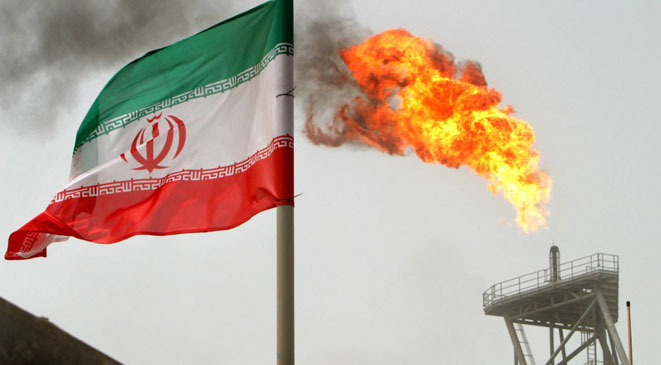
A senior official in the Indian Oil Company revealed the payment of 510 million USD of the Indian 621 million UDS debts to Iran. This company is considered the biggest importer of the Iranian crude oil that has increased its imports four times this year. The company’s Finance manager, Key Sharma, stated that they have signed an agreement to import five million tons of crude oil from Iran in 2016 and 2017, while in the past the average was only 1.5 million ton.
Source: Arman Emroz
♦ 12.8% growth rate in seaports sector in Iran
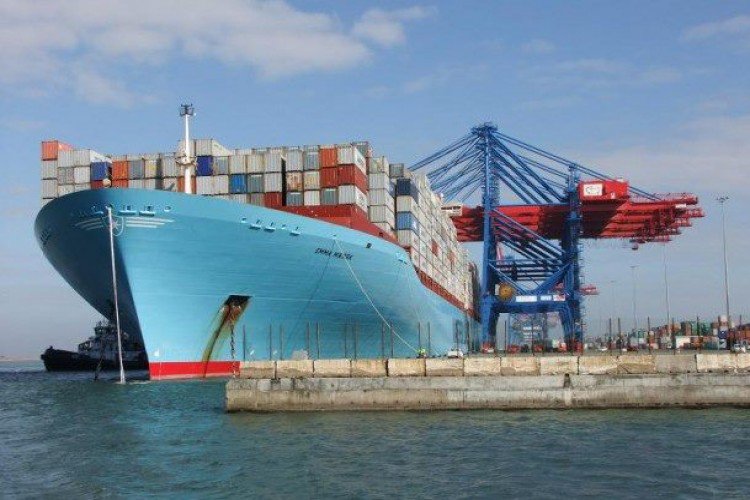
The Iranian seaports achieved 12.8% growth rate during the first five months of this year compared with the same period of last year amounting to 60 million, 38 thousand, and 629 tons of oil and other goods. According to IRNA News Agency, reporting from the Roads and Constructions News Site, oil exports recorded 126% in compare with last year, amounting to 10 million and 856 thousand tons.
Source: IRNA News Agency
♦ 150,000 Iranian children suffer from malnutrition
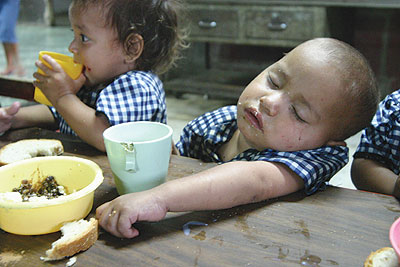
Statistics revealed that there are 150 thousand Iranian children suffer from malnutrition, although many of them are covered by welfare organizations. According to Assistant Minister of Social Affairs, Ahmed Meidry, 90 thousand of them have received no care or medical treatment, while Assistant Health Minister, Ali Akbar Siari announced that 30% of Iranians are facing famine and lack of food, which was denied by Meidry who asserted that poverty rate in Iran is very low, adding that malnutrition is contributed to the wrong practices and way of life of Iranian people. In fact, there are about 15o thousand children that suffer malnutrition and hold neither birth certificates nor Iranian ID cards.
Source: Shahrvand Newspaper
♦ Revolutionary Guards General killed in Syria

One of the Revolutionary Guards Commanders, General Ahmed Gholami was killed yesterday in the battles with the Syrian opposition in Aleppo. Until 1983, Gholami had been deputy commander of the tenth brigade, “Saied Alshuhada Battalion,” and Commander of Division 110, “Shaheed Brojerdi” until the end of the Iraqi-Iranian war.
Source: Asr Iran Site
♦ Breakdown of two terrorist cells

Chief of Sistan and Baluchistan police, Hussein Rahimi announced eliminating two big terrorist cells since the last march, adding that nine individuals were killed and 23 arrested. Rahimi praised the joined efforts of police forces and all community components in facing any possible threat and preserving the security of Iranian people.
Source: Arman Emroz Newspaper
♦ Transfer of S-300 to Iran does not violate UN Resolutions
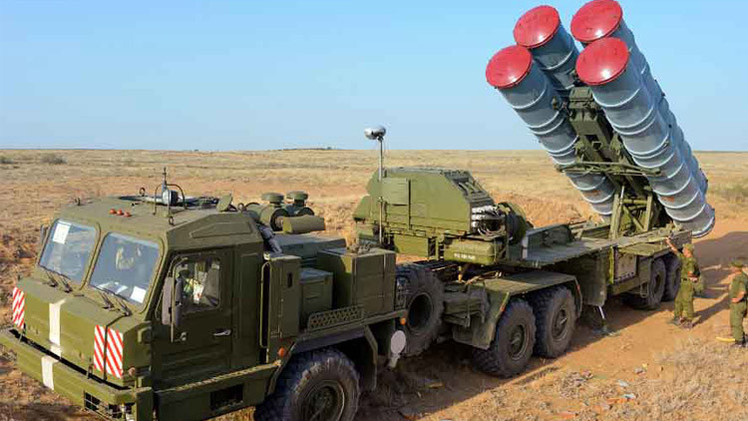
Security advisor of the United States president, Ben Rods, stated that Washington called Moscow many times to stop the S-300 missiles transfer to Iran, expressing Washington’s worries about the Iranian missile capabilities. Rods added that this agreement does not violate the UN resolutions and Iran has been committed to its obligations concerning its nuclear activities in Fordo Plant where the S-300 installed.
On the other hand, a member of the US armed forces committee in the congress, Tom Cotton, stated that the installation of the S-300 in the Frodo plant expresses the Iranian nuclear ambitions, asserting that Obama administration’s position toward immediate and swift lifting of sanctions made Iran gain such destabilizing weapons.
Source: Fares Agency
♦ Altercation between the President and a member of the Higher Council of Virtual Space
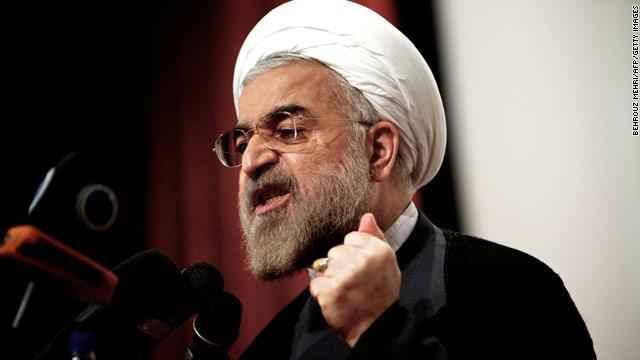
As a result of the frequent postponement of the Higher Council of Virtual Space meetings and the members’ dissatisfaction of the delay, the council conducted a session headed by president Rouhani. One of the members called the president to reconsider organization of the sessions saying, “I’m not a colonel,” which infuriated the president who responded saying that he would change the internal laws of the council, leading to a dispute between Rouhani and the member.
Source: Jam-e-Jam Newspaper
♦ Minister of Economy announces a 70 billion banking agreement with China
In a TV interview, Minister of Economy, Ali Taieb Nia announced that Iran has signed banking agreements for 70 billion USD with the “Chinese Development” bank to finance projects for about 15 billion USD in addition to another agreement with another Chinese bank for open financing. Nia added that Iran has recently opened an account in foreign currency in one of the Iranian oil importing countries last week, asserting that foreign investments in Iran amount to seven billion USD; four of which are in sectors other than the oil industry.
Source: Kayhan Newspaper
